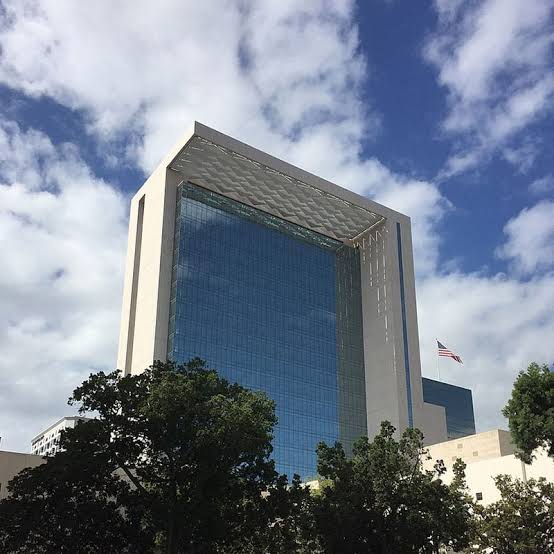Will vs. Trust: What Do You Need? Cost, Process and Uses
Foreign individuals in the UAE need to prioritize estate planning. Wills and trusts are used to facilitate the apportionment of property after death, but they have different goals, costs, and procedures. This article explains the main divergences between wills and trusts in the UAE with a view to helping you make an informed choice. Wills and trusts have some similarities since both of them involve sharing of assets upon death yet there is a clear distinction between them. Also they come along with varying expenditures and steps to be followed during their formation. Non-Muslim expatriates living in the UAE should thoughtfully evaluate their preferences when deciding whether to opt for wills or trusts as part of estate planning. Their basic differences will be looked into so that your decision-making process can be simplified.
Wills in the UAE
What happens after one’s demise can be detailed through a will, which designates how his/her affairs, particularly financial, should be handled upon death. A well-drafted will minimizes conflicts and uncertainty among claimants. It specifies how the deceased’s assets, such as land, investments, and commodities, will be distributed. In the Emirates, Islamic Wills are governed under Personal Status Law, while non-Muslim Wills are regulated by the Wills and Probate Registry.
There are three ways for non-Muslims to register a will within the UAE:
- Dubai International Financial Centre (DIFC) Wills Service – previously known as the DIFC Wills and Probate Registry.
- Abu Dhabi Judicial Department.
- Dubai Courts.
Importantly, despite the fact that wills only take effect after a person’s death, trusts can be created and become effective during the settlor’s lifetime. This allows for immediate or conditional management and disposal of assets. Contrary to wills, trusts permit a certain level of control and protection over the distribution; they may contain terms for asset distribution or provide for minor beneficiaries in the future.
When planning estate arrangements in the UAE, it is advisable to seek legal experts with a command of local law to ensure all documents are properly executed and registered, reflecting the individual’s interests and complying with various legal requirements
Writing a Will in the UAE
Non-Muslims who wish to register their wills in Dubai choose between:
1. The Public Notary of the Dubai Courts, or;
2. The Wills Service Centre of DIFC.
The disparities between a DIFC will and a Dubai Courts will tend to be based on the cost of registration and language preference. Unlike DIFC wills with higher fees available only in English, Dubai courts offer both Arabic and English options at lower charges. Additionally, the DIFC Wills Service Centre provides wills services to non-Muslims residents.
Steps for Creating a Will in the UAE
1. Contact an Attorney and Draft Your Will:
A contact must be made with lawyers registered in DIFC courts as this is vital for any will written under UAE law; neglecting it means that your document may become nullified hence cannot be executed as per Court orders. It is important while drafting that beneficiaries are named, guardians are appointed for minors, and which party should receive what is explicitly provided for.
It is advisable to hire a lawyer for creating and registering you will.
2. Choose the Type of Will:
DIFC offers various types of wills, including Full Wills, Guardianship Wills, and Property Wills. Choose the one that best suits your needs.
3. Arabic Translation of Will:
Once the client approves it, one must send this document for legal translation on time to make sure that any papers filed in Dubai courts are translated into Arabic. However, the whole proceeding is done in English if you register your will at DIFC Wills Service Center.
4. Book an online Appointment:
When you have prepared the will, you should be able to schedule a meeting either through online or DIFC Wills mobile app which follows making payments for registration. Personal attendance will be required before the Notary Public to sign and finalize all of the will formalities.
Cost of Wills
- Dubai Courts
The fees for executing and notarizing a will before the Dubai Courts amounts to approximately Dh2,000.
- DIFC wills
| Type of Will | Description | Single Will Cost (Dh) | Mirror Wills Cost (Dh) |
| Full Will | All assets, immovable and mobile | 10,000 | 15,000 |
| Guardianship Will | Pertaining to minors under 21 | 5,000 | 7,500 |
| Property Will | Up to five real estate holdings | 7,500 | 10,000 |
| Business Owners Will | Shares in up to five firms | 5,000 | 7,500 |
| Financial Assets Will | Shares in up to ten bank accounts | 5,000 | 7,500 |
2. Trust
A trust is simply a legal structure created by way of following Trust Deed and Trust Law to accomplish certain objectives. Consequently, foreign residents living and working in UAE can establish a trust within Dubai enabling them to manage their finances and distribute assets based on specified conditions. Moreover, investors who want to start businesses in UAE can use trusts as investments opportunities especially for those starting businesses in the UAE. We offer all-round support in creating trust structures for foreign investors, and other full services related to it.
Why should I establish trust in the UAE?
Setting up a Trust in UAE has many advantages such as:
1. Preserving wealth: When there is an orderly transfer of resources between generations, trusts assist in estate planning and wealth preservation. They make sure that future beneficiaries are able to obtain wealth. Over time, trusts facilitate organized and effective investing. What this does is that it ensures that assets are protected so that they follow their intended heirs. This way it ensures family resources are maintained through generations.
2. Succession Planning: This legal document helps with the distribution of assets to heirs who reside within the United Arab Emirates (UAE). It is applicable when the deceased had expatriate inheritance laws.
3. Protection of Assets: A trust safeguards properties from creditors and lawsuits brought against them. The beneficiary’s interest is secured.
4. Tax Planning: The tax structure of UAE renders trusts ideal tools for managing & minimizing liabilities associated with taxes due to non-existence or low levels of taxes.
5. Confidentiality: By keeping the information about beneficial owners confidential, these instruments help maintain high levels of privacy.
6. Legal Framework: UAE has a legislative framework which establishes trusts as set out in Federal Decree-Law No 31/2023 (Decree-Law).
How to create a Trust in the UAE
For a trust to be established in the UAE, these requirements must be met:
• Creating a trust deed: A primary legal document upon which a trust is created should be a trust deed. This document shall bear validity when approved and certified by an appropriate authority. The trust instrument must be written and binding as soon as it is signed by the settlor, and where applicable, also by the trustee(s) accepting his or her or their appointment;
• Registering a trust: The competent authority keeps this register with all relevant information on a trust.
• Validity: This involves that after validation has been done and issuing of the certificate of validness and execution from an authority concerned, it will apply to all others unless invalidated thereof only through court in accordance with Article 39 of Decree-Law.
• Language: Nevertheless, any other tongue including Arabic may be used for the purpose of drafting all annexes to such agreement provided that there exists its official translation into Arabic. In case of dispute, original language of settlement shall take precedence.
When drawing up the trust deed, remember that it should state clearly: declaration of a creating trust; beneficiary; object of a trust; the term of validity; name of the trust and rights and powers vested with the administration authority. However, if you need any further assistance or legal advice on this issue, it is always advisable to consult a lawyer specialized in such matters under UAE law.
Protects Your Legacy with UAE Trusts and Estate Planning Experts at HHS Lawyers
At HHS will drafting Dubai Lawyers, we understand how important it is for you to protect your legacy. Our experienced team consists of lawyers who specialize in designing estate plans to suit individual needs as well as meet specific requirements set out by UAE law. Whether you are creating will or different types of trusts our attorneys will assist you at every stage. We guarantee protection of your assets and compliance with your demands. Estate planning can be easy with our help. We give you clear explanations so that the process becomes simple without any complexity or worries. This area is well learned using our experience on estate planning under UAE laws.
Don’t put off safeguarding what remains ahead. We are ready now to begin securing peace for those most important to us.
Keep an eye for more latest news & updates on Discover Tribune!





